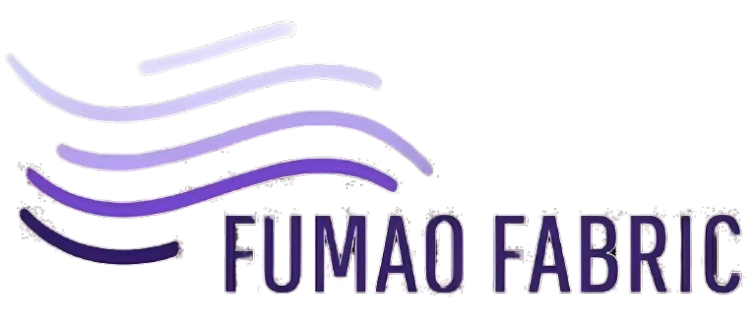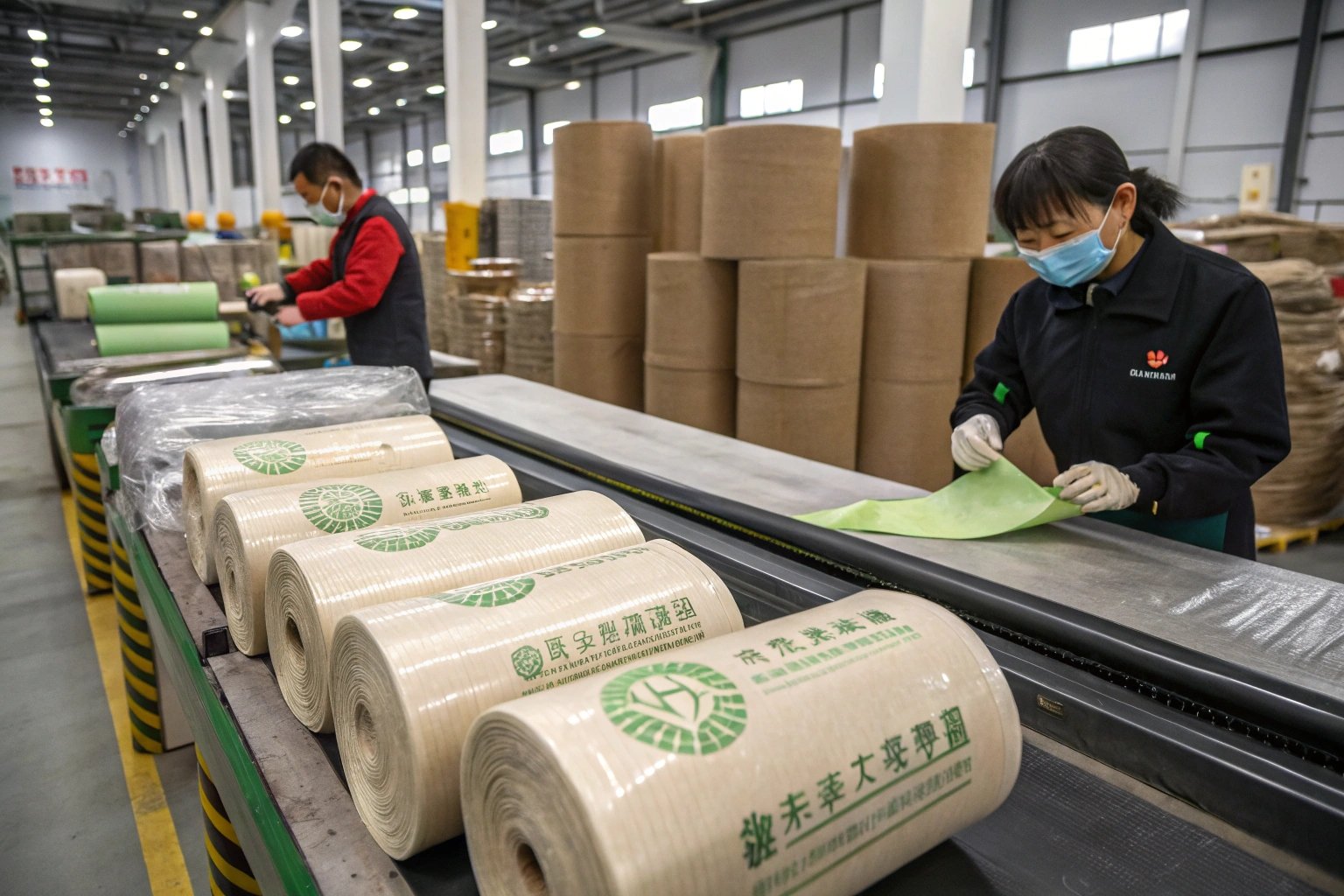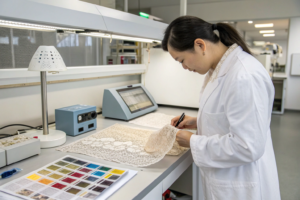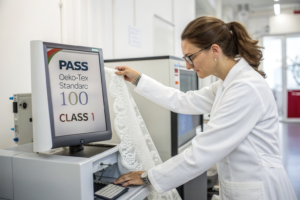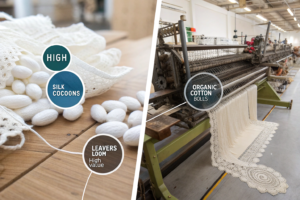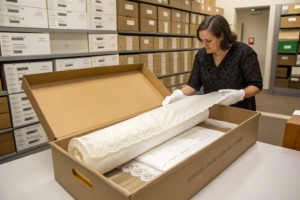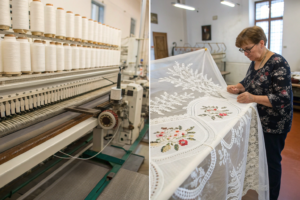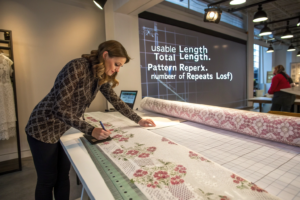Fabric packaging is often overlooked, yet it plays a significant role in the fashion industry's environmental footprint. Traditional PE plastic wraps, though protective, contribute to long-lasting pollution and microplastic waste. As the demand for sustainable sourcing grows, so does the call for biodegradable packaging—especially for fabric exporters serving eco-conscious markets like the EU and the U.S.
The latest biodegradable packaging options for fabric rolls include compostable PLA films, starch-based wraps, kraft paper tubes, and water-based printed labels—all offering protection while reducing landfill impact.
For buyers, understanding what’s available and how to verify true biodegradability is essential. This article breaks down the best options currently in the market, their benefits, and how Fumao Fabric is helping clients make the sustainable switch.
What Biodegradable Films Can Replace Traditional Plastic Wrap?
Plastic film wrap is standard in fabric shipping—but it's also one of the most criticized for its environmental cost. Fortunately, there are compostable alternatives now widely available for textile manufacturers.
Biodegradable film options like PLA (polylactic acid) and PBAT blends offer transparent protection and can decompose within 6–12 months in industrial composting conditions.
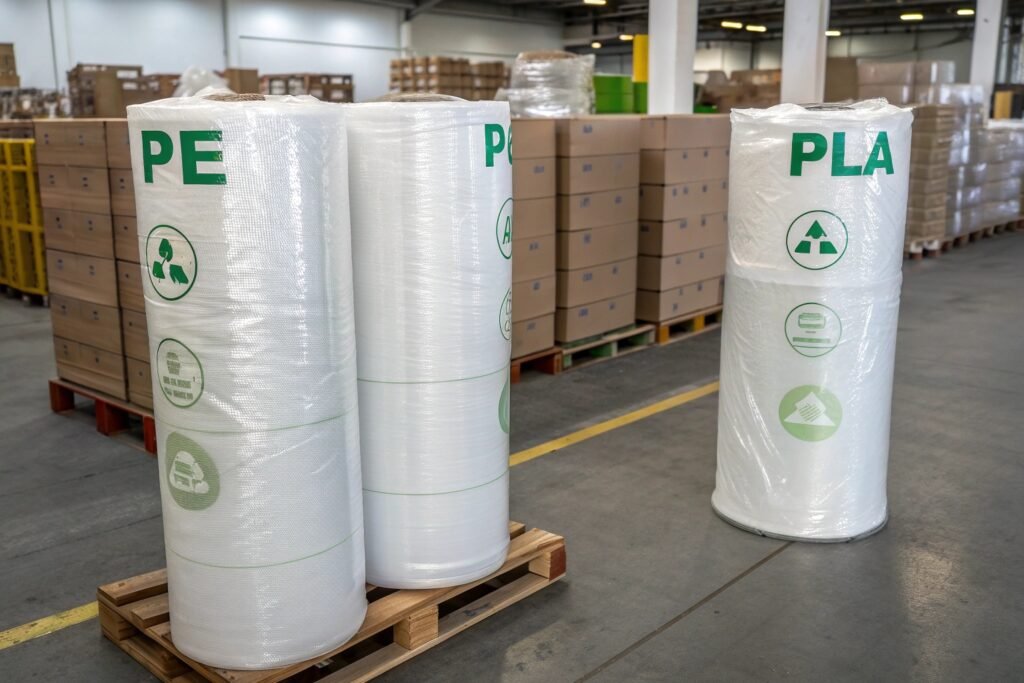
How Does PLA Film Perform for Fabric Packaging?
PLA film is derived from renewable resources such as corn starch or sugarcane. It’s transparent, heat-sealable, and moisture-resistant—ideal for protecting high-value fabrics like silk or cotton velvets.
Brands using PLA must ensure industrial composting infrastructure exists in destination markets. See NatureWorks' Ingeo PLA for globally certified grades. At Fumao, we offer 20-micron PLA film wrapping for rolls under 100kg.
Are Starch-Based Films Suitable for Export?
Yes—especially for regional transport or warehousing. They are softer than PLA but offer decent breathability. Suppliers like BI-OPLAST make packaging certified by TÜV Austria and DIN CERTCO. However, their mechanical strength may not suit high-pressure stacking in ocean freight, so we often combine them with outer kraft layers.
How Can Paper-Based Wrapping Be Used for Textile Rolls?
Paper-based packaging, once considered old-fashioned, is making a strong comeback due to its recyclability, print-friendliness, and lower carbon impact. Fabric rolls don’t need to be in plastic to remain protected—especially if moisture isn't a primary concern.
Kraft paper wrap, corrugated board cores, and paper-based straps provide physical protection and biodegradability, making them top choices for inland and short-haul shipping.
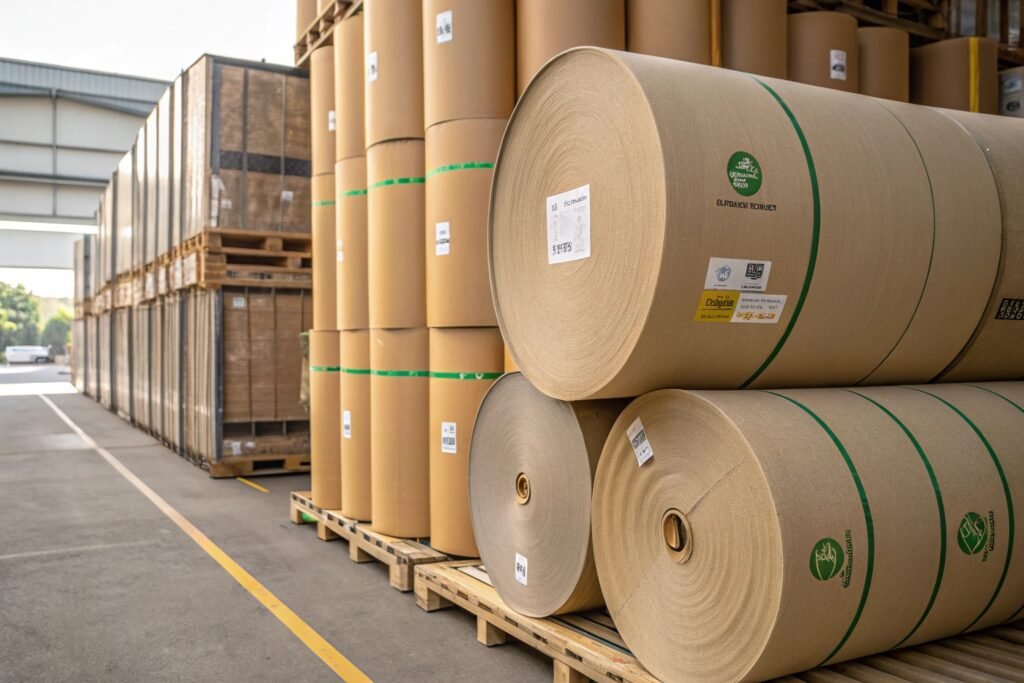
Why Is Kraft Paper a Smart Packaging Substitute?
Kraft paper is strong, recyclable, and widely accepted in EU recycling systems. Options range from plain rolls to wax-coated kraft that offer water resistance. At Fumao, we use FSC-certified kraft from Mondi Group for clients exporting to Germany and the Netherlands.
Plus, kraft paper allows easy brand customization through water-based ink printing, supporting low-MOQ eco branding.
Can Cardboard Tubes Replace Plastic Roll Cores?
Absolutely. Many clients now request recycled cardboard tubes instead of PVC or plastic-based roll cores. These tubes offer rigidity and are easier to handle at garment factories. They're fully compostable and recyclable, aligning with B2B clients’ sustainability reporting needs.
Are Biodegradable Labels and Tapes Available for Roll Marking?
While the fabric wrap gets most of the attention, the details matter too. Labels, sealing tape, and document pouches must also align with a zero-waste mission. Non-degradable barcode stickers and PE tape can undermine the whole system.
Today, paper labels, cellulose-based tapes, and starch mailers are available as fully compostable alternatives, ensuring every inch of packaging is sustainable.
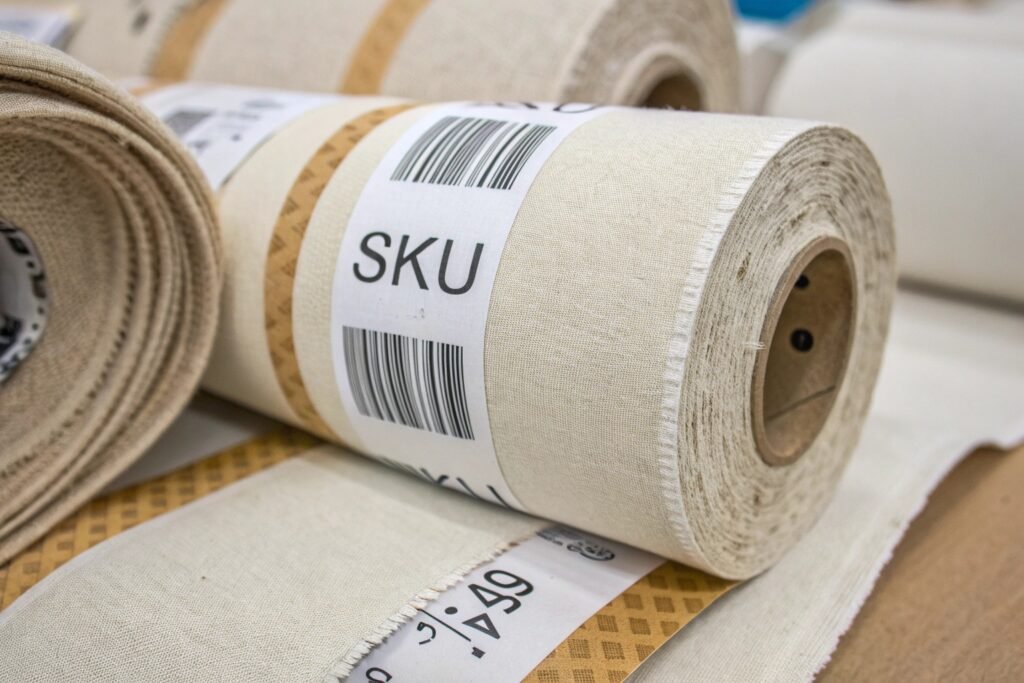
What Kind of Eco-Labels Work Best on Fabric Rolls?
Water-resistant kraft or sugarcane paper works well with both printed and handwritten tracking codes. These materials are compatible with thermal transfer and inkjet systems, and they degrade naturally in landfill or compost settings. We source ours from Avery Dennison’s Sustainable Portfolio.
Each roll at Fumao carries QR-code linked digital packing slips, eliminating the need for PE sleeves.
Are There Eco-Friendly Adhesive Tapes?
Yes. Cellulose-based tapes or water-activated kraft gummed tape provides strong adhesion and biodegradability. These tapes are ideal for closing kraft paper wraps and have been adopted by retailers like Patagonia. Fumao offers dual-sided tape options for clients managing fragile or dyed fabrics sensitive to glue migration.
How Do I Verify Biodegradability and Compostability Claims?
Biodegradable doesn’t always mean compostable—or even safe for landfills. As more packaging options flood the market, it’s crucial to demand certification and real lab data from your suppliers.
Look for packaging certified under standards like EN 13432, ASTM D6400, or the OK Compost label to ensure authenticity. Cross-check certificates with issuing bodies and require material data sheets.
![]()
What Certifications Should I Ask For?
Reliable certifications include:
- OK Compost (TÜV Austria) – for industrial and home compostability.
- BPI Certification (USA) – for ASTM D6400 standard compliance.
- EN 13432 (EU) – for commercial composting.
- ISO 17088 – global recognition of compostable plastic.
Use TÜV Austria’s certificate checker or BPI’s database to validate any supplier claims.
How Can Fumao Help with Documentation?
Our sustainable packaging materials are pre-certified, and we offer clients full technical sheets and export declaration files. We work with Intertek and SGS to ensure third-party testing is available when shipping to regions with strict eco-packaging laws, such as California or France.
Conclusion
Switching to biodegradable packaging isn’t just a trend—it’s a supply chain necessity. From starch films to kraft paper, from compostable tapes to certified labels, today’s fabric buyers have real choices that align with their sustainability goals. At Fumao Fabric, we help you implement these materials without compromising quality, durability, or customs compliance. Whether you're a large apparel importer or an eco-conscious boutique brand, we’re here to wrap your rolls with responsibility.
